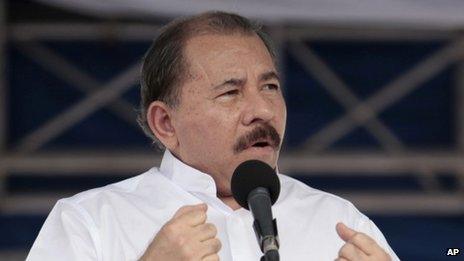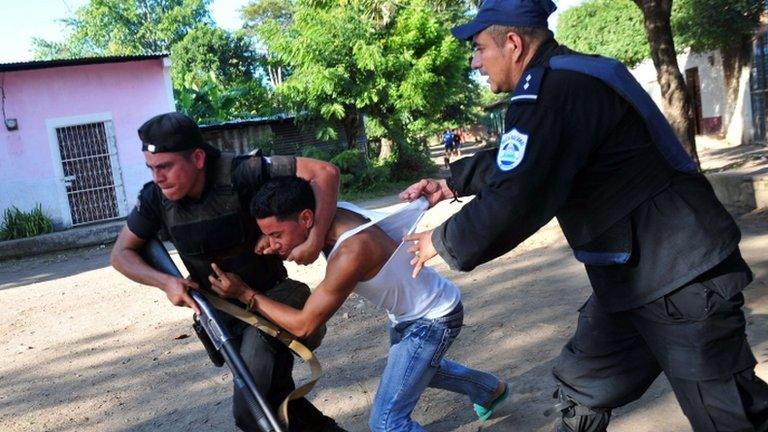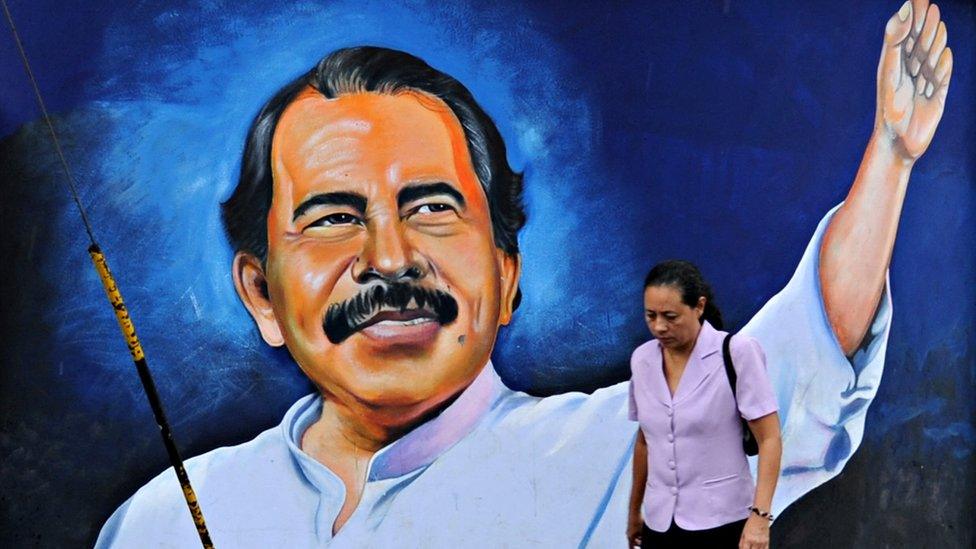Nicaragua's Daniel Ortega 'could stand for fourth term'
- Published

Daniel Ortega has spent around half of his life as the leader of Nicaragua
A constitutional reform which would allow Nicaraguan President Daniel Ortega to run for an unprecedented fourth term has been approved by the National Assembly.
The plan, which must still be ratified next year, abolishes the two-term limit for presidents.
The United States has criticised the proposal, and a crowd protested outside parliament in the capital, Managua.
Mr Ortega first came to power during the Sandinista revolution, in 1979.
He served initially as president until 1990, and then won elections again in 2006.
The Sandinista-controlled National Assembly approved the constitutional reform bill by 64 votes to 26.
'Illegitimate'
The National Assembly will have to vote again on the plan in 2014.
But members of the opposition said the changes were "illegitimate" and only designed to perpetuate Mr Ortega's power.
Dozens of people protested against the reform and criticised the members of the Parliament for approving it.
Besides scrapping term limits on the presidency, the proposed changes would allow the appointment of active duty police and military officials to government offices currently set aside for civilians.
When the Sandinistas came to power in 1979, they redistributed property and made huge progress in the spheres of health and education.
However, their pro-Cuban orientation alarmed the United States, which launched a sustained campaign of embargo and armed subversion.
In 1990, the Sandinistas were defeated in elections. But Mr Ortega made a come-back at the polls in 2006 and was sworn in as president the following year.
A Supreme Court ruling allowed Mr Ortega to run for re-election in 2011.
- Published6 November 2012

- Published10 January 2022

- Published7 December 2010